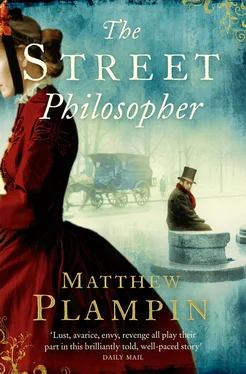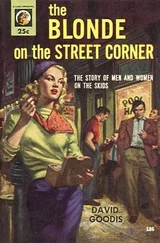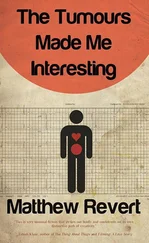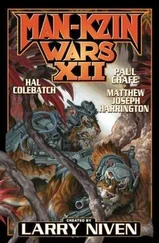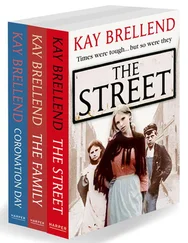Twelves, taking this equivocation as weakness, eyed him with cool, contemptuous pity. ‘As ye wish, Mr Norton.’ He put on his hat. ‘Ye will hear from me soon. A good night to ye, sir.’
The investigator left. Charles Norton stared up at a display case of shining buckles mounted on the study wall, seized by a constricting sense of foreboding that threatened to suffocate him where he sat.
The Valley of the Alma, Crimean Peninsula September 1854
1
Lieutenant-Colonel Boyce rode the line on a black mare, the points of his moustache jutting out into the clear midday air like a pair of tusks, waiting for the order to advance.
‘Look at that cunt,’ muttered Private Cregg, scratching at his sweat-darkened armpit. ‘Just look at ’im. Thinks ’e’s king, gen’ral and pri’ minister all rolled up inter one. God on the bleedin’ throne.’ He paused to spit a sour pellet of well-chewed tobacco through a gap in his blackened teeth. ‘The cunt.’
‘Aye,’ agreed those who crouched or sat around him, ‘the cunt.’ They were careful to keep their voices down. The officers of the 99th, although deaf to complaints about the lack of decent rations and shelter, had remarkably good hearing whenever anybody had a bad word to say about the Lieutenant-Colonel. Dozens had been flogged raw for such indiscretion. Dan Cregg, however, wasn’t bothered by the lash. They’d done him three times already since the day they set sail from Old England, and would do him as many times again, most likely. He’d erred countless times in his life, and considered his stubborn refusal to learn from these experiences to be bold, manly defiance. He would name things as he saw them, by God, and to hell with them all.
Coming to the end of the 99th, Boyce wheeled his mare about and started back again. Cregg squinted, lifting up his gun as if preparing to fire. ‘It’d be so bleedin’ easy,’ he sneered. ‘ Bam! And one less toff cunt in the world, drinkin’ up all the brandy.’
There was a low, nervous chuckle. Cregg could be trouble, but today his comrades welcomed his disrespectful talk, if only as a distraction from the scene that stretched out before them. A wide, gently sloping plain, dotted with small copses and the occasional vineyard, led down some two miles to a hamlet of crude stone houses and barns. Behind this, fringed with trees, was the narrow, brownish River Alma. Rising up abruptly on its opposite bank were the Heights. To the men of the 99th, who were mostly from the south of England, these heights seemed positively mountainous, a daunting climb indeed; but climb them they must, for up there, like a dark burn across the soft green hillsides, was the enemy. The soldiers found their eyes returning to the massed ranks of Russians time and time again. For nearly two weeks they had been kept in constant expectation of an enemy attack; and yet here the bastards were, dug well into the perfect defensive position, waiting patiently in the warm sunshine. The redcoats swallowed hard, wiping their clammy palms on their trousers.
It was towards his own men, however, and not the Russians, that Lieutenant-Colonel Boyce’s gaze repeatedly wandered. Like him, they were in full dress uniform; squirming and complaining, as the common soldier was so wont to do, tugging gracelessly at their tight tunics, and the leather chin-straps of their shakos, but smart and correct. Boyce had the junior officers well trained. Any attempt by a private to undo a button, or take off his helmet, would immediately be halted, and the miscreant’s name taken for punishment.
If only the same rules could be applied to the other ranks, he thought angrily, as his eye snagged on the solid figure of Major Maynard, who stood at the edge of the 99th’s battalion with a telescope in his hands, scanning the Heights. Boyce had made his desire for dress uniform quite plain at the regimental briefing that morning. And his own costume, from the shining leather of his boots to the plump ostrich feather bobbing on his cocked hat, perfectly demonstrated the sartorial magnificence available to the field officer prepared to invest in his wardrobe.
Yet Maynard’s attire was mixed and decidedly well-worn: a shell jacket, dull boots, threadbare trousers, and a plain undress cap. The overall effect left one in no doubt about his plebeian origins. He looks exactly like what he is, the Lieutenant-Colonel thought–the son of a costermonger, who has wormed his way into Her Majesty’s Army like a fat maggot into an apple, instead of purchasing his place like a gentleman. Boyce directed his mare towards the unfortunate Major, his fury mounting.
Madeleine watched the heated exchange between the two officers from the side of a low hill, just behind the main body of the Allied Army. Her husband, who was some distance from where she sat, seemed merely a little scarlet-faced doll, gesticulating with his tiny arms. With a sigh, she raised the gold opera glasses that lay in her lap. The cool metal touched briefly against the top of her cheek, just below the eye; and there Nathaniel was, glaring at poor Maynard as if confronting a child-murderer. Their argument was short-lived. Nathaniel rode away suddenly, cutting the Major off in mid-sentence.
A large group of officers’ wives were sitting close to Madeleine, their backs straight as plumb lines, their noses lifted high in perpetual disdain. They cast frequent glances at her, their faces showing a mixture of supercilious curiosity and cold dislike. Beyond them, on the top of the hill, were the British generals and their aides, of whom there seemed to be a great many. Madeleine had no idea who any of them were, besides Lord Raglan, and that was only on account of his missing arm. That limb, as she was regularly reminded by Nathaniel, was lost at Waterloo, to a French cannon-ball. He would say this in the most accusatory manner, as if it was somehow her fault; but all she knew about the battle of Waterloo, besides the fact that Wellington’s men prevailed and the French were soundly beaten, was that it took place a very long time ago. You could tell this, in fact, from a single look at the British commander-in-chief. Drawn and withered, and clearly exhausted, Raglan was an old man. His voice, which drifted down the hill occasionally, was demure, gentle, frail even. That is not a leader’s voice, Madeleine thought.
She did not know what to make of this day. She understood, of course, that there was to be a great battle. All around the hill on which she sat, there were soldiers, many thousands of them, the British in red to the left, the French in blue to the right–allies now, united against a common foe. Beyond the French Army, out to sea, was a flotilla of battleships, ominously still, their cannon trained on the Heights. Heavy guns were being carted up behind the infantry, to pound the distant redoubts and earthworks within which the Russians lurked. Surely, a voice inside her protested, this was to be a terrible thing. Surely very many men would be killed. Surely Richard, who was down there somewhere, doing his duty to the Courier and the British public, was in terrible danger.
But spirits on that hillside were high. The other wives were talking amongst themselves with calm assurance, even laughing from time to time in the nasal, strangulated manner of English ladies. They were not behaving at all like women who, in a few short hours, might be widows. They discoursed at length on the Russian Army, how it was nothing but a disorganised rabble, a rag-tag assemblage of half-starved peasants, criminals and savages, marshalled by a degenerate aristocracy, all corrupted by their perverted religion. They confidently anticipated that this miserable band would crumble before the hard steel of British resolve; that victory would be both easy and fast. Madeleine looked out at the vast allied force, and made herself believe it.
Читать дальше
